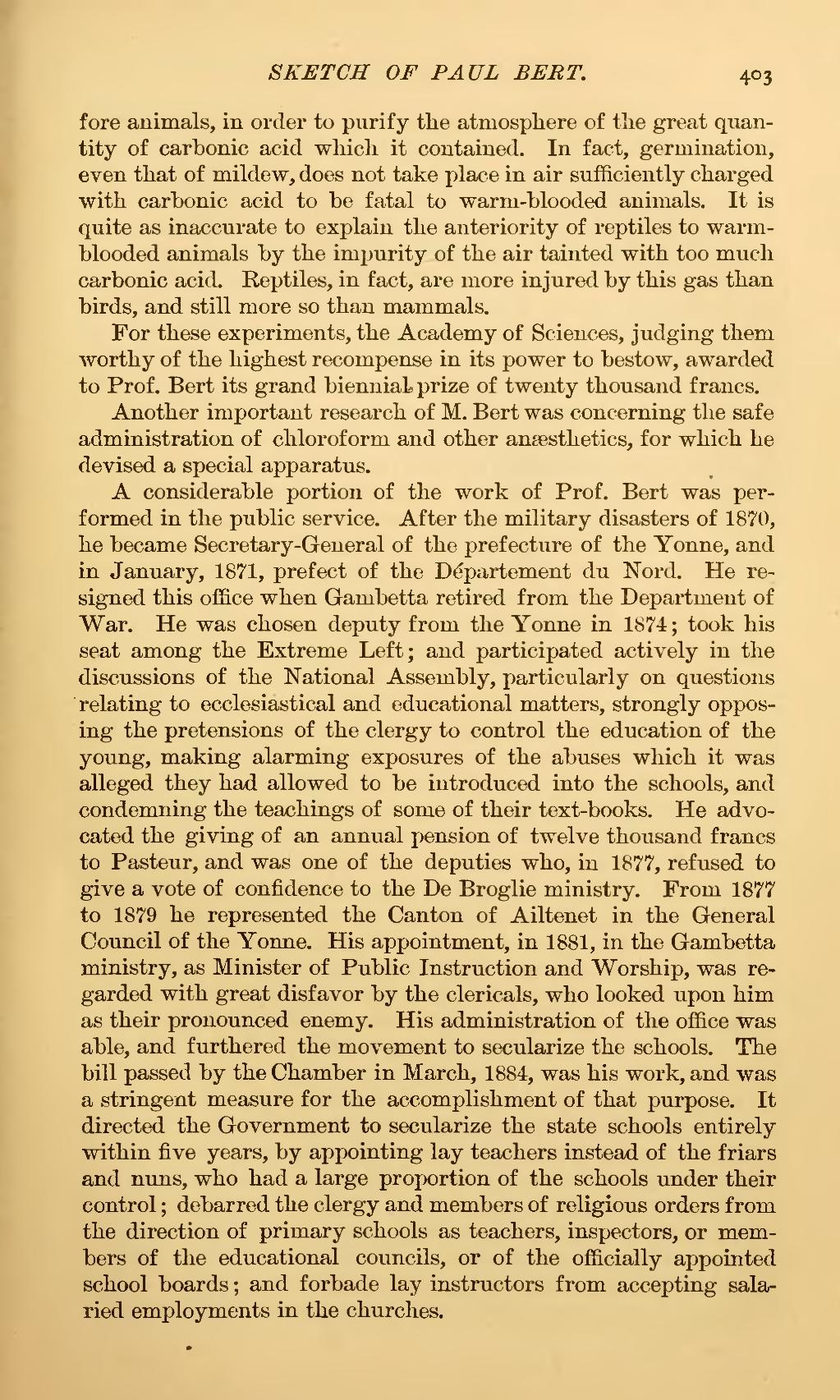fore animals, in order to purify the atmosphere of the great quantity of carbonic acid which it contained. In fact, germination, even that of mildew, does not take place in air sufficiently charged with carbonic acid to be fatal to warm-blooded animals. It is quite as inaccurate to explain the anteriority of reptiles to warm-blooded animals by the impurity of the air tainted with too much carbonic acid. Reptiles, in fact, are more injured by this gas than birds, and still more so than mammals.
For these experiments, the Academy of Sciences, judging them worthy of the highest recompense in its power to bestow, awarded to Prof. Bert its grand biennial prize of twenty thousand francs.
Another important research of M. Bert was concerning the safe administration of chloroform and other anæsthetics, for which he devised a special apparatus.
A considerable portion of the work of Prof. Bert was performed in the public service. After the military disasters of 1870, he became Secretary-General of the prefecture of the Yonne, and in January, 1871, prefect of the Département du Nord. He resigned this office when Gambetta retired from the Department of War. He was chosen deputy from the Yonne in 1874; took his seat among the Extreme Left; and participated actively in the discussions of the National Assembly, particularly on questions relating to ecclesiastical and educational matters, strongly opposing the pretensions of the clergy to control the education of the young, making alarming exposures of the abuses which it was alleged they had allowed to be introduced into the schools, and condemning the teachings of some of their text-books. He advocated the giving of an annual pension of twelve thousand francs to Pasteur, and was one of the deputies who, in 1877, refused to give a vote of confidence to the De Broglie ministry. From 1877 to 1879 he represented the Canton of Ailtenet in the General Council of the Yonne. His appointment, in 1881, in the Gambetta ministry, as Minister of Public Instruction and Worship, was regarded with great disfavor by the clericals, who looked upon him as their pronounced enemy. His administration of the office was able, and furthered the movement to secularize the schools. The bill passed by the Chamber in March, 1884, was his work, and was a stringent measure for the accomplishment of that purpose. It directed the Government to secularize the state schools entirely within five years, by appointing lay teachers instead of the friars and nuns, who had a large proportion of the schools under their control; debarred the clergy and members of religious orders from the direction of primary schools as teachers, inspectors, or members of the educational councils, or of the officially appointed school boards; and forbade lay instructors from accepting salaried employments in the churches.

